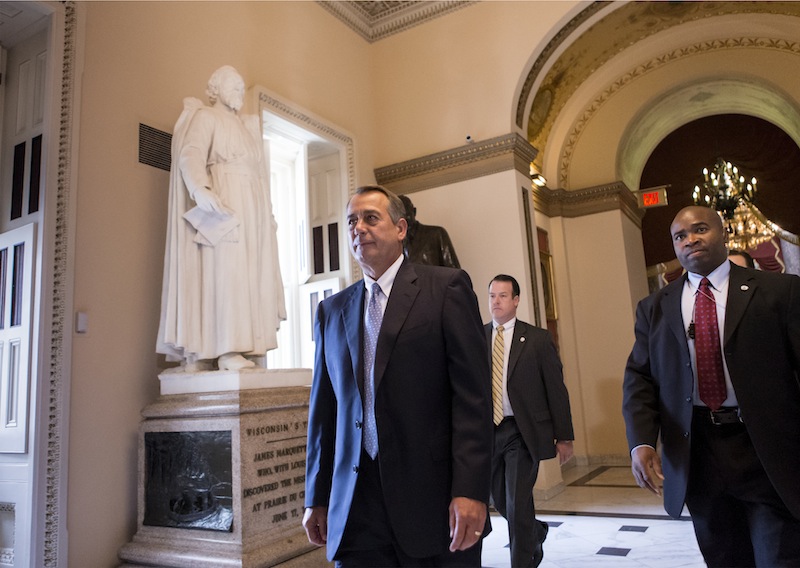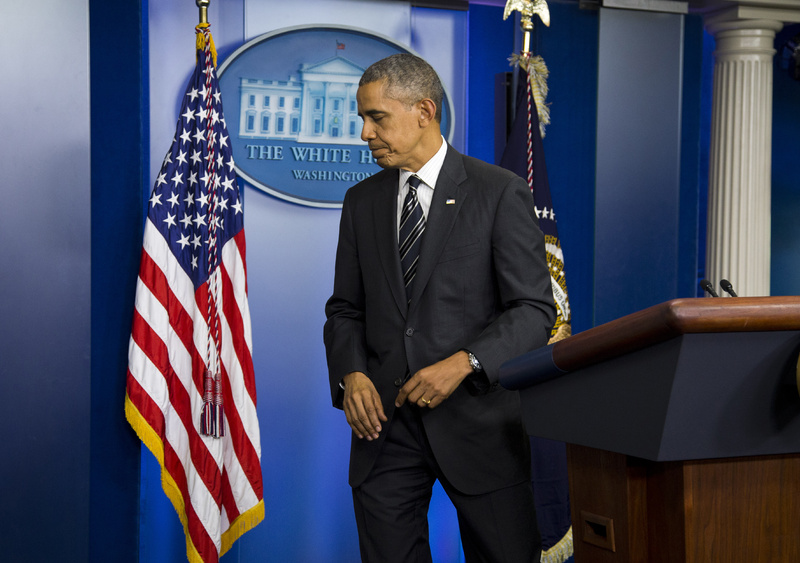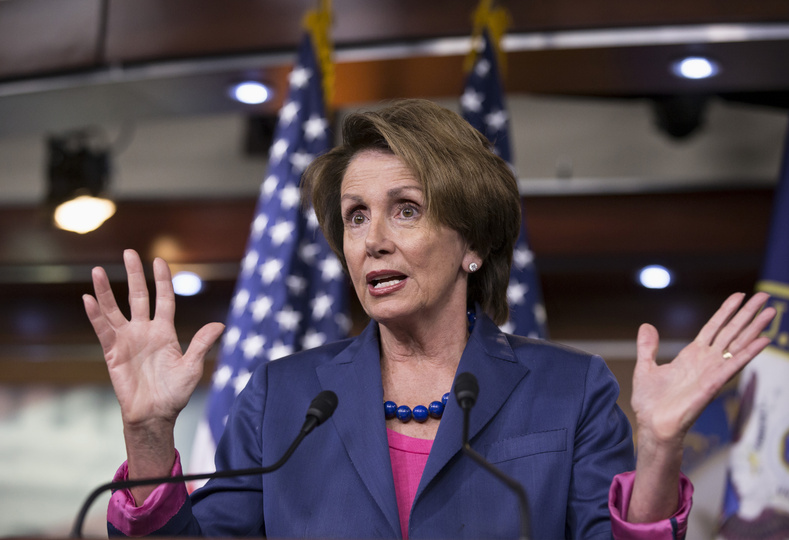WASHINGTON — â¨With Washington barreling toward a government shutdown, a deadlocked Congress entered the final weekend of the fiscal year with no clear ideas of how to avoid furloughs for more than 800,000 federal workers. Millions more could be left without paychecks.
The Senate on Friday approved a stopgap government funding bill and promptly departed, leaving all of the pressure to find a solution on House Republican leaders.
President Obama weighed in, sternly lecturing GOP leaders that the easiest path forward was to approve the Senate’s bill, which includes money for the implementation of the Affordable Care Act, the president’s prized legislation achievement, which he signed into law in 2010. But a far-right bloc of House and Senate Republicans banded together to leave House Speaker John Boehner, R-Ohio, virtually powerless to act.
“My message to Congress is this: Do not shut down the government. Do not shut down the economy. Pass a budget on time,” Obama said in the White House press briefing room.
Boehner’s leadership team offered no public comment and remained out of sight most of Friday, hunkering down for another weekend on the brink. For Boehner, this is the latest in a series of unstable moments that have become the hallmark of his three-year run as speaker.
With a stroke-of-midnight deadline on Monday, Senate Majority Leader Harry Reid, D-Nev., said Democrats would reject any conservative add-ons that Boehner might attach to the funding bill. That would further delay passage, and given the staunch opposition from Sen. Ted Cruz, R-Texas, who has said that he will make no concession to help move the process along, the slow-moving Senate would require up to a week to approve something even if Reid were amenable to the changes. That sets the stage for a shutdown Tuesday.
“We’ve passed the only bill that can avert a government shutdown Monday night. I said this on the floor, I say it again: This is it, time is gone,” Reid said Friday after the midday passage of the funding bill on a party-line vote.
Before that final roll call, Cruz’s attempt to filibuster the legislation was throttled in a bipartisan 79-to-19 vote, but the first-year senator drew support from nearly half the rank-and-file Republicans in defiance of Senate Minority Leader Mitch McConnell, R-Ky.
Cruz confirmed reports that he has been huddling with House conservatives to help plot their strategy to force Boehner’s hand on the health-care law. “I am confident if the House listens to the people, as it did last week, that it will continue to step forward and respond to the suffering that is coming from Obamacare,” Cruz told reporters Friday, saying he has had “numerous conversations” with House Republicans.
While the health-care law has had some provisions delayed amid a wobbly rollout, Obama and Democrats oppose any effort to strip funding or delay implementation of the law as it begins a critical new period next week. The president warned that demands to delay the Affordable Care Act’s implementation were even more reckless in connection with raising the debt limit, because the Treasury will run out of maneuvers to continue borrowing Oct. 17 and will head toward a first-of-its-kind default on the nearly $17 trillion debt. Economists have warned that a default would send a shock through global financial markets and would jolt interest rates.
“I don’t know how I can be more clear about this: Nobody gets to threaten the full faith and credit of the United States just to extract political concessions,” Obama said Friday.
Meanwhile, House leaders delayed consideration of their initial proposal to raise the federal debt limit until at least next week.
After a few noncontroversial votes naming federal buildings, the House adjourned Friday morning amid deep uncertainty about its next steps. Boehner and Cantor called a noon Saturday caucus meeting in the Capitol basement to forge ahead.
For the moment, GOP leaders have given no indication they were willing to simply approve the Senate legislation. Such a move, some Republicans privately fear, could lead to a collapse of support among GOP lawmakers and result in the legislation passing largely on the strength of Democratic votes. That would leave Boehner, already the weakest speaker of the modern political era, even more politically wounded heading into the debt ceiling talks.
Several Republicans said Friday that they favor a “stick” approach — an amendment so distasteful to Democrats that they might feel compelled to return to the negotiating table. Others favor a “carrot” approach, attaching an item Democrats would find hard to refuse — including possibly delaying sequestration cuts for a year in exchange for delaying implementation of the Affordable Care Act for a year. They did not detail the specifics of either approach.
Send questions/comments to the editors.





Success. Please wait for the page to reload. If the page does not reload within 5 seconds, please refresh the page.
Enter your email and password to access comments.
Hi, to comment on stories you must . This profile is in addition to your subscription and website login.
Already have a commenting profile? .
Invalid username/password.
Please check your email to confirm and complete your registration.
Only subscribers are eligible to post comments. Please subscribe or login first for digital access. Here’s why.
Use the form below to reset your password. When you've submitted your account email, we will send an email with a reset code.